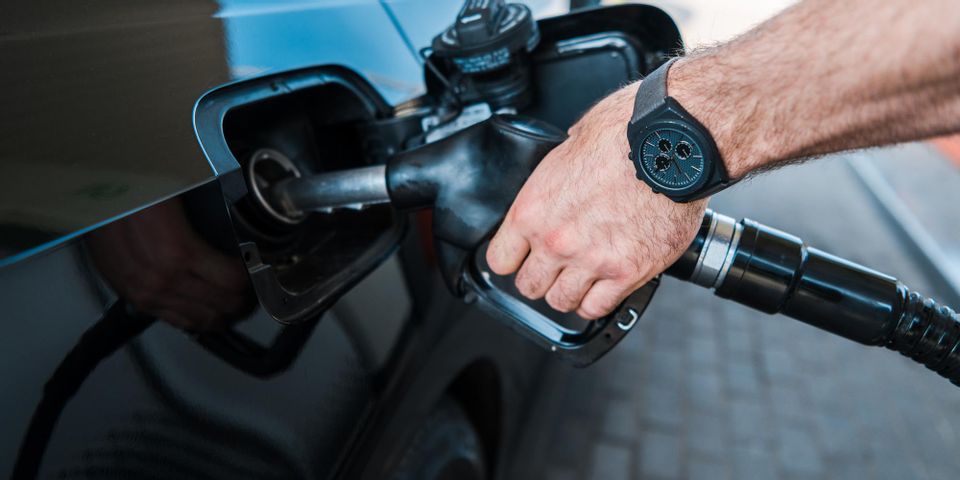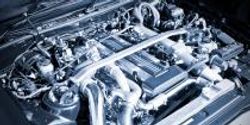Differences Between Diesel & Gasoline Engines

To many people, the difference between diesel and gasoline engines begins and ends at the pump. While both are internal combustion engines, the differences are significant enough that swapping fuels makes for an auto maintenance disaster. Here’s what defines these two engine types and how they differ.
Understanding Engines
Basics of an Internal Combustion Engine
Diesel engines and gasoline engines function the same. Both are internal combustion engines that ignite their respective fuel source as a means of moving pistons up and down inside a cylinder, turning a crankshaft to create the rotation needed to turn the wheels. The key difference is how their respective fuel sources are ignited.
Gasoline Combustion
 These engines ignite gasoline by an electric spark. Spark plugs are inserted into the end of the cylinder that creates an electric spark, based on the position of the piston. Gasoline mixed with air is injected into the cylinder during the intake stroke and is compressed as the piston is pushed up.
These engines ignite gasoline by an electric spark. Spark plugs are inserted into the end of the cylinder that creates an electric spark, based on the position of the piston. Gasoline mixed with air is injected into the cylinder during the intake stroke and is compressed as the piston is pushed up.
An electric discharge is sent through the spark plug, igniting the gasoline and forcing the piston back down, turning the crankshaft. Multiple offset pistons ignite in sequence to power the engine in a constant cycle.
Diesel Combustion
Diesel is a bit different from gasoline, as it has a lower self-ignition temperature. This type of engine takes advantage of compression ignition, rather than using a spark to ignite the fuel. Diesel is injected into the cylinder, and as the diesel is compressed, it reaches its self-ignition temperature and combusts, forcing the piston back down.
Complications
Aside from accidentally using the wrong fuel type, certain mechanical issues occasionally happen to each engine type as a result of poor auto maintenance or general wear and tear. Gasoline engines are not designed to operate by compression ignition but by a timed spark. If the engine compression is too high for the fuel and air mixture, it can ignite prematurely, posing a risk of serious engine damage.
Diesel engines may have an issue of not getting enough compression, especially during cold weather. Some diesel engines have glow plugs that heat the combustion chamber in an attempt to force an ignition when it will not self-ignite. Regular auto maintenance may require you to replace glow plugs more frequently in colder climates.
Regardless of which type of engine you’re using, your car or truck needs regular auto maintenance to keep it running properly. If you’re near Waterbury, CT, the pros at Vito’s Auto Tech have over 30 years of experience working on nearly any problem you might have. Whether it’s engine performance, electrical systems, or brake issues, they will help. Call them at (203) 755-0020 or visit them online for more information.
About the Business
Have a question? Ask the experts!
Send your question

